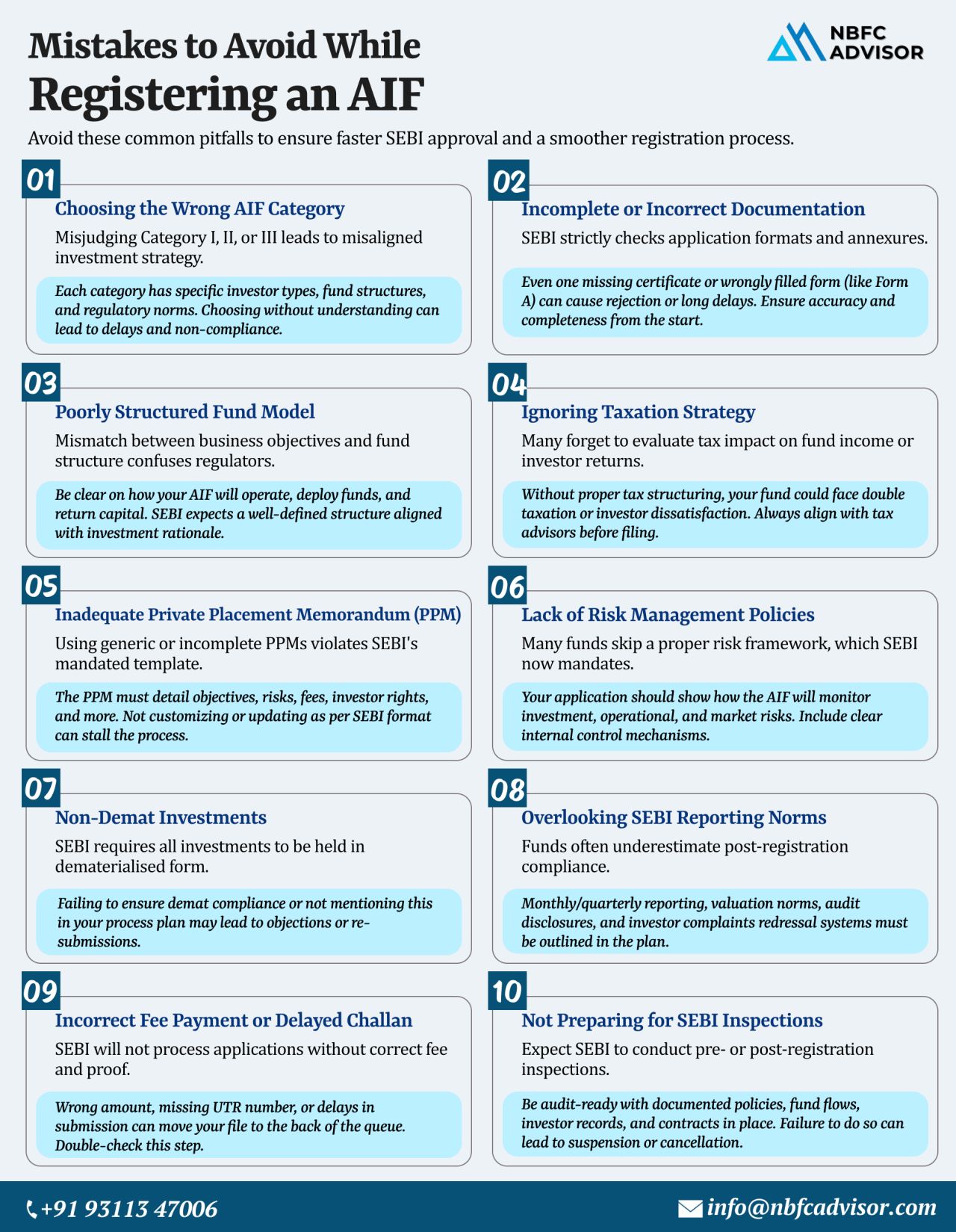Top 10 Mistakes to Steer Clear of During AIF Registration
Registering an Alternative Investment Fund (AIF) with SEBI is a critical step toward launching a compliant and successful investment vehicle in India. However, many fund managers and promoters face delays or rejections due to avoidable oversights during the application process.
To streamline your AIF registration and ensure a smooth approval journey, here are the top 10 mistakes you must avoid:
1. Selecting the Wrong AIF Category
Each AIF category (I, II, or III) comes with its own regulatory framework. Choosing an inappropriate category that doesn’t align with your fund’s objectives can complicate compliance and cause unnecessary delays.
2. Submitting Incomplete or Inaccurate Documents
Documentation is the foundation of your registration. Errors or missing details in key documents—like trust deeds, fund strategies, or agreements—often lead to objections from SEBI.
3. Unclear Fund Structure
Your fund’s legal and operational structure must be coherent and well-defined. Any inconsistency in how the fund is set up—be it a trust, LLP, or company—can raise compliance red flags.
4. Overlooking Tax Planning
Tax considerations are often underestimated during setup. Without a proper tax strategy in place, both the fund and its investors could face unfavorable tax outcomes in the future.
5. Using a Generic or Outdated PPM
The Private Placement Memorandum (PPM) must be precise, fund-specific, and updated to reflect current regulations. Relying on generic or outdated formats can slow down the registration process.
6. Absence of a Robust Risk Management Policy
Especially for Category III AIFs, a clear and detailed risk management framework is essential. SEBI expects funds to demonstrate how they intend to manage operational and investment risks.
7. Non-Compliance with Dematerialization Norms
AIFs are required to issue units in demat form. If your setup doesn’t comply with this requirement—such as failing to coordinate with NSDL or CDSL—SEBI may withhold approval.
8. Neglecting SEBI’s Reporting Obligations
Post-registration compliance is just as important as the approval itself. Many fund managers overlook the quarterly and annual reporting norms required by SEBI, leading to penalties later on.
9. Mistakes in Fee Payment or Challan Submission
Errors in fee calculations or delays in submitting challans are simple yet costly mistakes that can result in application rejection or processing hold-ups.
10. Lack of Readiness for SEBI Inspections
Once registered, AIFs are subject to SEBI inspections. Not having proper documentation, internal controls, or compliance systems in place can damage the fund’s reputation and standing.
✅ Ensure a Smooth AIF Registration Process
Success begins with preparation. A strategic approach, supported by expert guidance and regulatory understanding, can help you avoid common pitfalls and secure timely approval from SEBI.
📞 Need Professional Help with AIF Registration?
Our team offers complete support—from structuring and documentation to SEBI liaison and post-registration compliance.
👉 Schedule your free consultation today.
📞 +91 93113 47006
#NBFCAdvisor #AIF #SEBI #AlternativeInvestmentFund #AIFRegistration #SEBICompliance #FundManagement #InvestmentFunds #FundSetup

